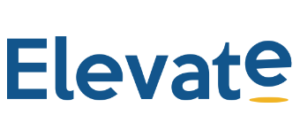Four Reasons AI-Driven Recruitment Will Benefit Charities
These are challenging times for charities in the UK. While the need for their services is rising dramatically, only 18% of charitable organisations have the appropriate resources and tools to meet that demand.
This challenge is being compounded by the fact that the long-term impacts of Brexit have yet to manifest, the proportion of people giving money to charity saw a steady decline between 2016 and 2018 (69% to 65%) and budgets continue to tighten.
Among other challenges, this blend of factors means that many charities are understaffed. 88% of local charities have fewer than five full-time employees, while 55% have no full-time employees at all.
Could the development and adoption of AI-driven recruitment technologies help UK charities to unlock new efficiencies and address their staffing challenge?
Let’s take a look at what these AI-driven platforms can achieve and how they might benefit UK charities.
What Are AI-Driven Recruitment Platforms?
These powerful nascent platforms can automate critical recruitment tasks, such as:
- Talent sourcing
- CV screening
- Candidate outreach
- Candidate qualification
By helping with such tasks, those platforms can elevate hiring results and make hiring managers much more efficient.
Those platforms are growing in prominence, too: an impressive 96% of senior HR professionals believe that AI has the potential to enhance talent acquisition and retention significantly. In comparison, 55% of HR managers see evidence of AI becoming a regular part of HR within the next five years.
How AI-Driven Recruitment Will Benefit Charities
Here’s how we will see UK charities make the most of these platforms:
1. Reduce recruitment costs
According to findings from Glassdoor, the average cost of recruitment for a new employee in the UK is £3,000. That’s a significant amount of money for any private sector organisation, let alone a public sector charity.
In trying times, it’s critical that UK charities work as efficiently as possible and leverage new technologies to reduce that cost.
AI-driven recruitment tools are a great opportunity from this perspective.
These recruitment tools can help hiring managers within charities to automate critical tasks, unlock new efficiencies and find talent quicker. Using an AI-driven tool, for instance, hiring managers within charities will be able to access a wider pool of talent and sort through it much faster.
Those types of features can help drive down steep recruitment costs and protect the budgets of cash-strapped charities.
2. Free up valuable time
As we touched on earlier, charities often have very small teams. This means that multidisciplinary team members will usually wear several different hats – recruitment and hiring might prove to be a distraction from other more primary work.
AI-driven recruitment tools are going to liberate the time of charity workers, who’ll be better able to focus their attention on other areas. With more time on their hands, charity workers will be able to focus on crucial areas like fundraising and essential administrative tasks.
As AI-driven recruitment tools continue to mature, we’ll be sure to see teams within charities do great things with their newfound time.
3. Slash time-to-hire
The average time to hire in the UK lasts 26.8 working days. This is often longer within the public sector, too, owing to a lack of candidates and resources.
This presence of unfilled roles can negatively affect charities, given that it can cause significant operational challenges. Without the right team members, charities find it difficult to operate and place a considerable strain on existing team members.
AI-driven recruitment tools can help to expedite the time to hire, though, and give charities the power to find the right candidates within a reasonable timeframe.
4. Uncover appropriate candidates
It’s critical that charities are able to attract the right talent. Potential team members need to exhibit desirable personality and character traits that will set them up for success within a charity environment.
The process of finding sourcing those candidates according to those factors is never easy, however. It takes a lot of time and effort, which results in more expensive hires and a protracted sourcing period.
AI-driven tools are giving hiring managers new ways to sort and select their talent. These new functionalities can provide hiring managers within charities the ability to sort talent and source the perfect candidates to fill their essential roles.
Closing Thoughts
We’ll be sure to see AI-driven recruitment platforms mature over the coming years, and we’re very excited about how their application might benefit the many hard-working charities in the UK.
Here at Elevate, we’re delighted to play a part in discovering the potential of AI-driven recruitment technology. We look forward to helping charities across the UK and beyond unlock all of the benefits outlined above.



